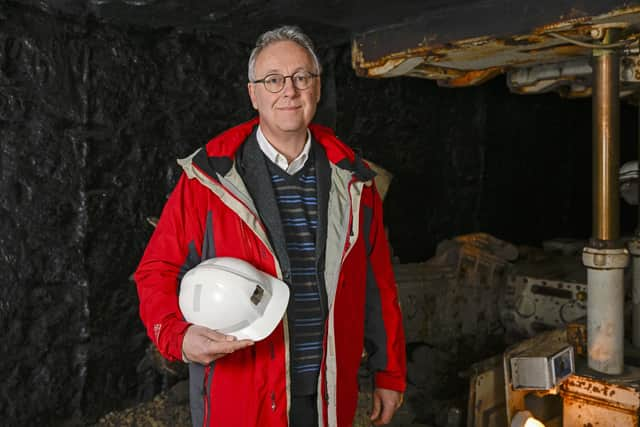Edinburgh University supercomputer's waste energy could provide heating for city homes
and live on Freeview channel 276
A first-of-its-kind system in the UK is being trialled in Edinburgh to see if waste heat from a large computing facility can be stored in disused mine workings and used to warm homes.
The large amounts of energy needed to power the Edinburgh University’s Advanced Computing Facility (ACF) could be recycled to heat at least 5,000 households in Scotland’s capital.
Advertisement
Hide AdAdvertisement
Hide AdThe facility is home to the national supercomputer and used for research such as national climate modelling and health data modelling. It currently releases up to 70 Gigawatt hours of excess heat per year.


This is projected to rise to 272 GWh once the UK Government’s recently announced next-generation Exascale supercomputer is installed at the university.
A £2.6 million feasibility study will examine how the water in old mine workings near the computing facility could be harnessed to heat people’s homes.
The process of cooling the supercomputers would be augmented to transfer the captured heat into the mine water – up to a maximum temperature of 40°C – which would then be transported by natural ground water flow in the mine workings, and made available to warm people’s homes via heat pump technology.
Advertisement
Hide AdAdvertisement
Hide AdIf successful, the study could provide a global blueprint for converting abandoned flooded coal, shale and mineral mine networks into underground heat storage.
With a quarter of UK homes sitting above former mines, seven million households could potentially benefit, researchers say.
The Edinburgh Geobattery project – led by Edinburgh-based geothermal company TownRock Energy – is being spearheaded by industry and academic partners from Scotland, the US and Ireland.
Edinburgh University is the lead research partner on the project and is providing £500,000 of funding as part of its own net zero objectives.
Advertisement
Hide AdAdvertisement
Hide AdScottish Enterprise has awarded a £1million grant to the project through the Joint Programming Platform Smart Energy Systems and Geothermica – two networks that have co-funded projects developing innovative heat and cooling solutions.
Further funding is being contributed by the US Department of Energy, University College Dublin and Strathclyde University, who are also project partners.
Edinburgh Innovations, Edinburgh University’s commercialisation service, will help make the research findings an investible proposition.
Lead academic Professor Christopher McDermott, from Edinburgh University’s School of Geosciences, said: “This project opens up the potential for extracting heat stored in mine water more broadly.
Advertisement
Hide AdAdvertisement
Hide Ad"Most disused coalmines are flooded with water, making them ideal heat sources for heat pumps. With more than 800,000 households in Scotland in fuel poverty, bringing energy costs down in a sustainable way is critical, and using waste heat could be a game-changer.”
David Townsend, founder of TownRock Energy, said: “We are pleased to be leading this multi-national research consortium, benefitting from world- leading academic expertise. Capturing, storing and re-using waste heat is critically important to reaching net zero, and here we are learning and testing how best to do this in the ground, in legacy coal mine infrastructure."
Suzanne Sosna, Director of Energy Transition at Scottish Enterprise, said: “This is a remarkable, collaborative project for Scottish Enterprise to support alongside international and Scottish partners from government, academia, and industry. I’ll watch with keen interest how gigabytes can turn into clean heat as the Edinburgh Geothermal project progresses. This initiative also highlights the energy transition market opportunities available for Scotland as we strive for net zero.”